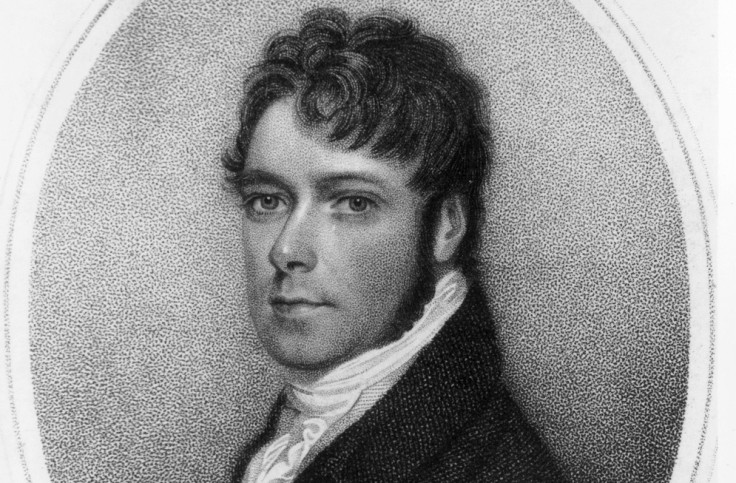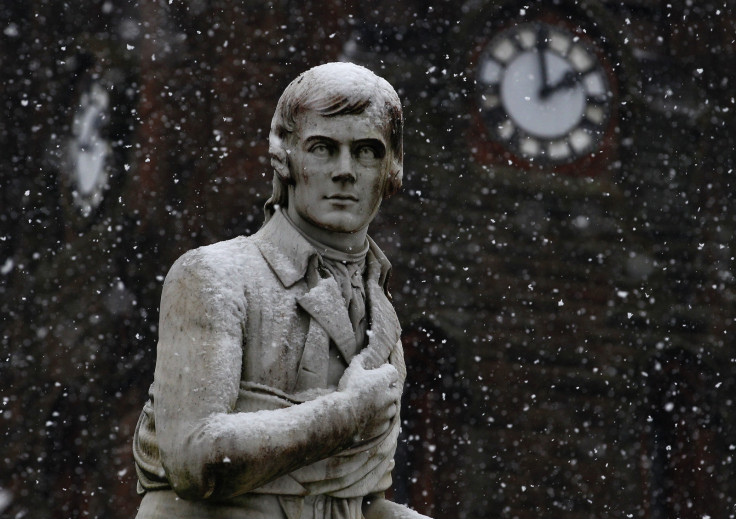Burns Night 2016: What is the celebration of Scotland's national poet all about?

Burns Night, the anniversary of the birth of Scottish poet Robert Burns, is celebrated annually on 25 January. The tradition of the Burns Night supper, first held in 1801 by the poet's close friends five years after his death, still continues to this day.
Burns is one of Scotland's most important literary figures, best known for his famous – and often humorous – songs and poetry. He is regarded as Scotland's National Bard. His most recognised works include Auld Lang Syne, which is often sung at Hogmanay on New Year's Eve, and Scots Wha Hae, which has become an unofficial Scottish national anthem.
Burns, commonly known as Rabbie, was born to a poor family in Alloway, Ayr, on 25 January 1759 and began his working life on the family farm. His father hired a local teacher to tutor Burns, who showed signs of having a natural talent for writing from a young age.
As Burns grew older, his passion for Scotland and his contemporary vision played important roles in inspiring the founders of socialism and liberalism. His first work, Poems, Chiefly in the Scottish Dialect – later known as the Kilmarnock Edition – was published in 1786.
He also wrote in English and is regarded as a pioneer of the Romantic movement. Burns' poetry drew on references to classical, biblical and English literature, as well as the Scottish Makar tradition – a term from Scottish literature for a poet or bard.
Burns died in Dumfries at the age of 37. Inspired by Scottish history and culture, as well as Scotland's countryside, Burns remains one of the most celebrated figures in the country's history – as demonstrated by the annual Burns Night celebrations.

What is a Burns supper?
A traditional Scottish meal washed down with Scotch whisky is the long-established way to celebrate Burns and his life. Haggis is common, but other recipes include Scottish smoked salmon, cock-a-leekie soup or stovies, of which the basic ingredients – meat, potatoes and onion – make a great winter warmer.
Suppers can range from an informal gathering of friends to a huge, formal dinner full of pomp and circumstance. A short but important prayer read to usher in the meal, The Selkirk Grace, is also known as Burns's Grace at Kirkcudbright. Although the text is often printed in English, it is usually recited in Scots:
Some hae meat and canna eat,
And some wad eat that want it,
But we hae meat and we can eat,
And sae the Lord be thankit.
© Copyright IBTimes 2025. All rights reserved.



















